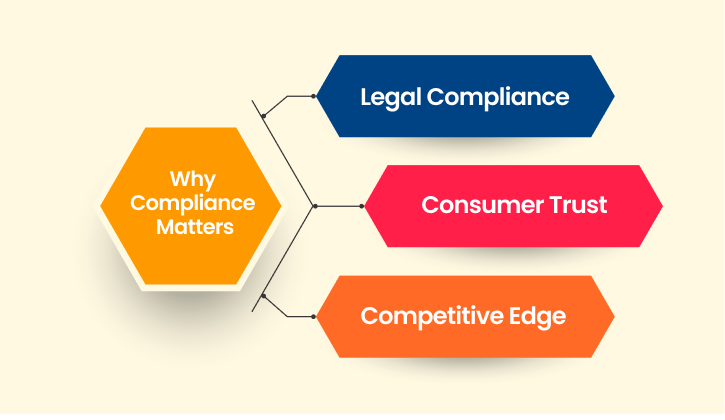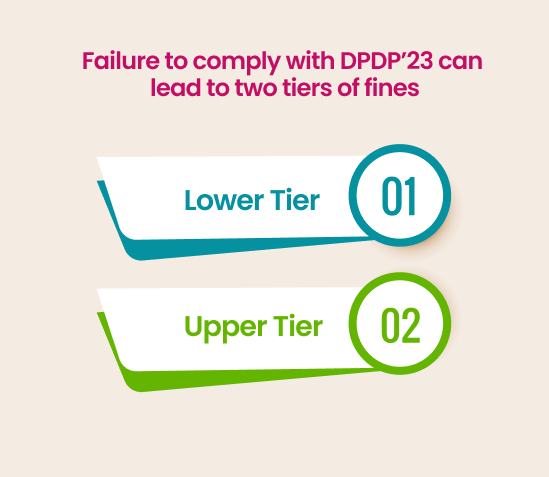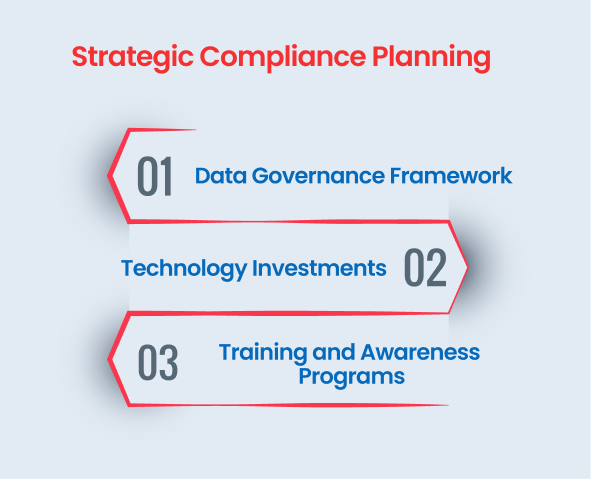“Ignoring data protection rules can lead to fines worth millions, even billions, directly affecting your company’s bottom line.”
Introduction to DPDP’23
The Data Protection and Privacy Act of 2023 (DPDP’23) represents a significant milestone in data privacy legislation, echoing the rigorous demands of international standards like the GDPR. This new act demands high transparency, accountability, and consumer-focused data handling practices from businesses. Understanding DPDP’23 is not just about legal compliance; it’s about safeguarding the future of your business in a digital world where data breaches are not just probable but inevitable.
Significance of DPDP’23 for Businesses
DPDP’23 affects every aspect of how businesses handle personal data—from collection to processing and beyond. This section details why DPDP’23 is a critical concern for businesses, especially SMEs that may lack robust data protection infrastructures.
Why Compliance Matters:

- Legal Compliance: Avoiding significant fines and penalties
- Consumer Trust: Building and maintaining consumer confidence
- Competitive Edge: Staying ahead in markets where consumers value privacy
Detailed Overview of DPDP’23 Requirements
DPDP’23 introduces several stringent requirements that reshape how businesses must approach data privacy:
- Consent Management: It mandates obtaining explicit, informed consent from data subjects before processing their personal data.
- Right to Access and Erasure: Giving individuals the right to access their data and request its deletion.
- Data Minimization: Limiting data collection to what is directly necessary for the specified purpose.
- Data Protection Impact Assessment (DPIA): Requiring DPIAs for high-risk data processing activities to evaluate and mitigate risks.
Financial Risks and Penalties of Non-Compliance
Failure to comply with DPDP’23 can lead to two tiers of fines:

- Lower Tier: Up to 2% of annual global turnover for minor infringements
- Upper Tier: Up to 4% of annual global turnover or €20 million (whichever is greater) for more severe breaches
Real-World Examples of Non-Compliance:
Example from GDPR: In 2019, a major social media platform was fined $5 billion by the FTC for privacy violations, highlighting the severe financial implications for global businesses under similar laws.
Local Example: A regional healthcare provider faced a $1 million fine for not securing patient data adequately, illustrating the impact on smaller entities.
Cost of Compliance vs. Non-Compliance
Investing in Compliance:
- Initial Costs: Upfront investments in cybersecurity infrastructure, training, and policy adjustments
- Ongoing Costs: Regular audits, updates to security measures, and continual staff training
Consequences of Non-Compliance:
- Direct Financial Losses: Fines and penalties as detailed above
- Indirect Costs: Loss of business due to damaged reputation, increased insurance premiums, and potential litigation costs
Strategic Compliance Planning

To effectively navigate DPDP’23, businesses need to implement strategic planning focusing on several key areas:
- Data Governance Framework: Establishing clear policies and procedures for data management and protection.
- Technology Investments: Upgrading IT infrastructure to secure data and ensure compliance.
- Training and Awareness Programs: Educating employees about their roles in protecting data and complying with DPDP’23.
Role of Technology in Ensuring Compliance
Modern technology solutions play a crucial role in ensuring DPDP’23 compliance:
- Automated Tools for Consent Management: These tools help manage and document user consents as required by the law.
- Encryption and Anonymization Techniques: Essential for protecting data and minimizing the impact of potential breaches.
- AI and Machine Learning: For monitoring data transactions and identifying potential breaches before they occur.
Conclusion

DPDP’23 sets a new precedent for data protection, and its financial implications for non-compliance can be monumental. However, with thoughtful preparation and strategic investment in compliance infrastructure, businesses can not only avoid these penalties but also enhance their market position by building trust and ensuring customer loyalty.
For businesses looking for a comprehensive solution to navigate the complexities of DPDP’23, Mitigata offers tailored services that ensure compliance and protect your business from the substantial risks of non-compliance.
Explore Mitigata’s offerings today and secure your business’s future in the digital landscape.




